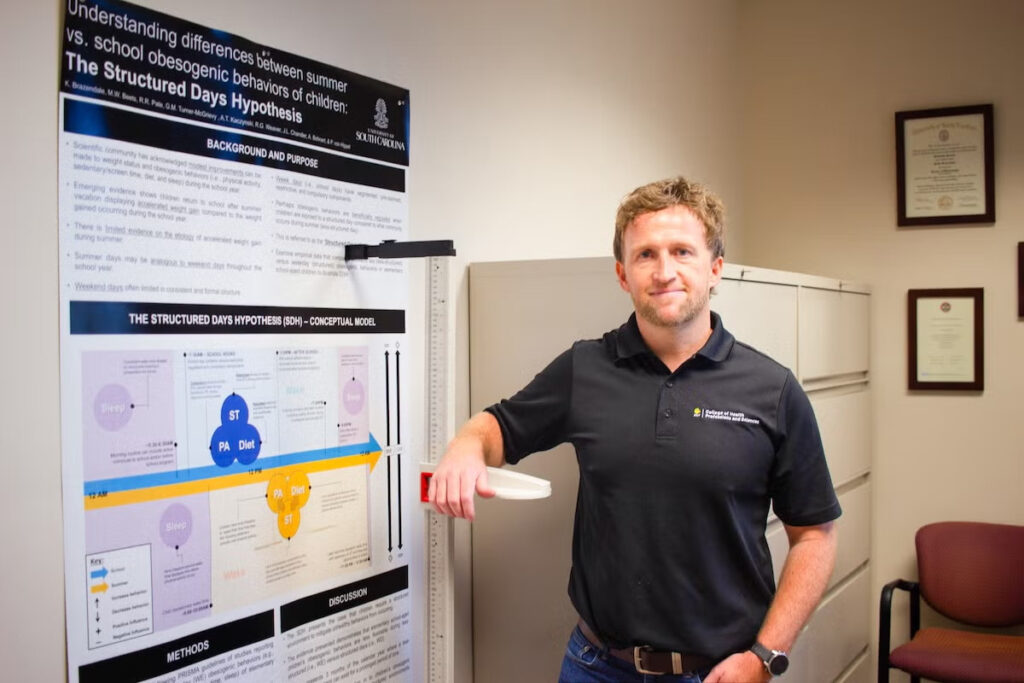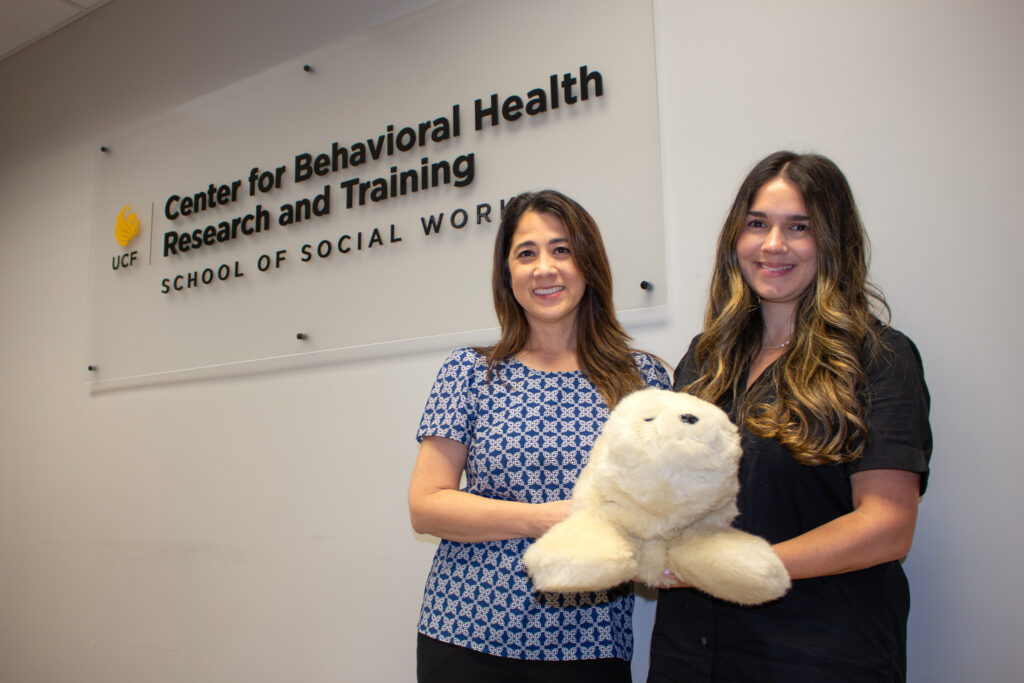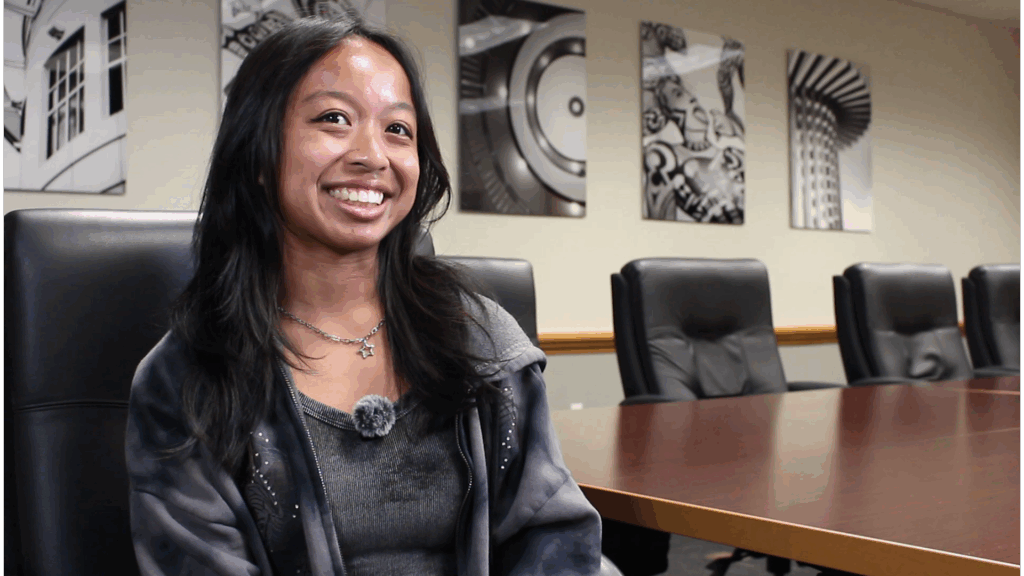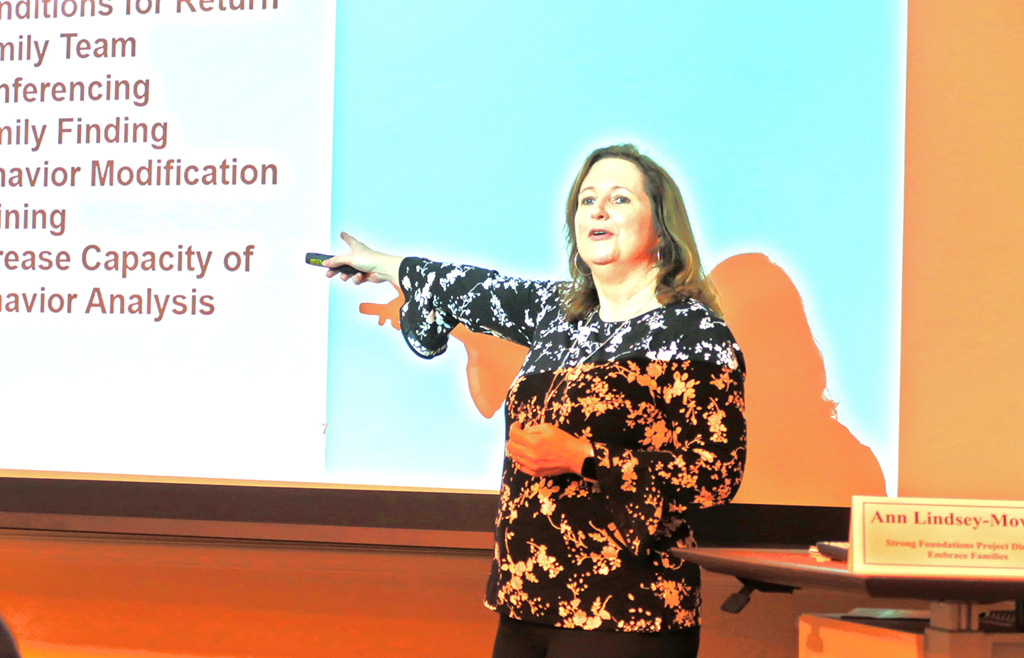
Associate Professors Julie Steen and Chris Stewart in UCF’s School of Social Work are leading an evaluation of an effort by Embrace Families to strengthen the child welfare system and improve outcomes for children in foster care. The $1 million evaluation subcontract issued by Embrace Families is part of the Strong Foundations project, a five-year endeavor funded through an $8.6 million cooperative agreement with the Children’s Bureau, a division of the U.S. Department of Health and Human Services.
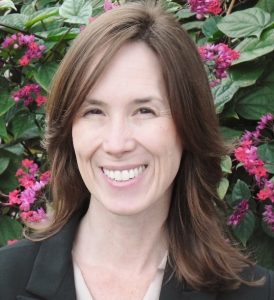
What is the Strong Foundations project?
“The Strong Foundations project is designed to advance child permanency,” Steen said. “Embrace Families is seeking to reduce delays in the system so that children are returned to their families as soon as it is safe to do so. They are also seeking to better engage with parents and thus strengthen families.”
Steen and Stewart, along with their colleagues in the School of Social Work, Mary Ann Burg, Ph.D. and Tiffany Lumpkin, Ed.D.; and Nancy Nguyen, a research assistant, will evaluate the efficacy of the project from data they receive from Embrace Families and other sources.
Embrace Families has spent the past year working with other child welfare partners to determine the best strategies to improve Child and Family Services Review (CFSR) scores and the best way to implement them.
“Dr. Steen and Dr. Stewart have significant experience with child welfare,” said Ann Lindsey-Mowery, Ph.D, ’13, project director for Strong Foundations. “They are research partners who really got this from day one.”
How will Strong Foundations address permanency issues in the child welfare system?
There are three strategies that will be implemented beginning in April or May to achieve this goal, Lindsey-Mowery said. These include creating a supervisor certification process, producing a tool to assess case complexity, and developing a “conditions for return” process that clearly spells out what is needed before a child can return home.
“A specialized case manager supervisor certification will increase the understanding of core supervisory competencies and enhance the ability to coach, mentor and supervise case managers in the field,” Lindsey-Mowery said.
Under this funding opportunity, Embrace Families is also developing a tool to accurately assess case complexity so that cases can be equitably distributed to case managers, thereby making individual caseloads more manageable and helping to reduce burnout.
The last deliverable will be to develop, train, implement and fully support a “Conditions for Return” process that clearly spells out specific behaviors, conditions or circumstances that must exist within a child’s home before the child can safely return and remain in the home.
It takes a village to make systemic changes
Lindsey-Mowery stressed that the complexities involved with achieving the funding goal would not be possible without the support and assistance from other child welfare entities, including the Office of Court Improvement, Office of Child Welfare, Department of Children & Families, Guardian ad Litem Program, Children’s Legal Services, Foster and Adoptive Parent Association, Casey Foundation, Families First Network, Community Partnership for Children, Brevard Family Partnership, Heartland for Children, and Citrus Family Care Network.
“Strong Foundations is a great example of how the Florida child welfare community collaborates and innovates to best meet the needs of kids and families,” says Lindsey-Mowery. “We are grateful for the involvement of our partners from around the state, including the expertise of the UCF team. The steps we are taking with Strong Foundations will reduce the time that children spend in foster care, and empower case workers to provide the best support possible.”
Florida’s Strong Foundations project is one of five awarded nationally in 2018 to “develop, implement and evaluate strategies that focus on better adoption outcomes.” The other sites that received the award are the Department of Children Youth and Families in Washington; Judiciary Court of the State of New Mexico; the University of Kansas Center for Research, Inc.; and the University of Texas – Austin.

